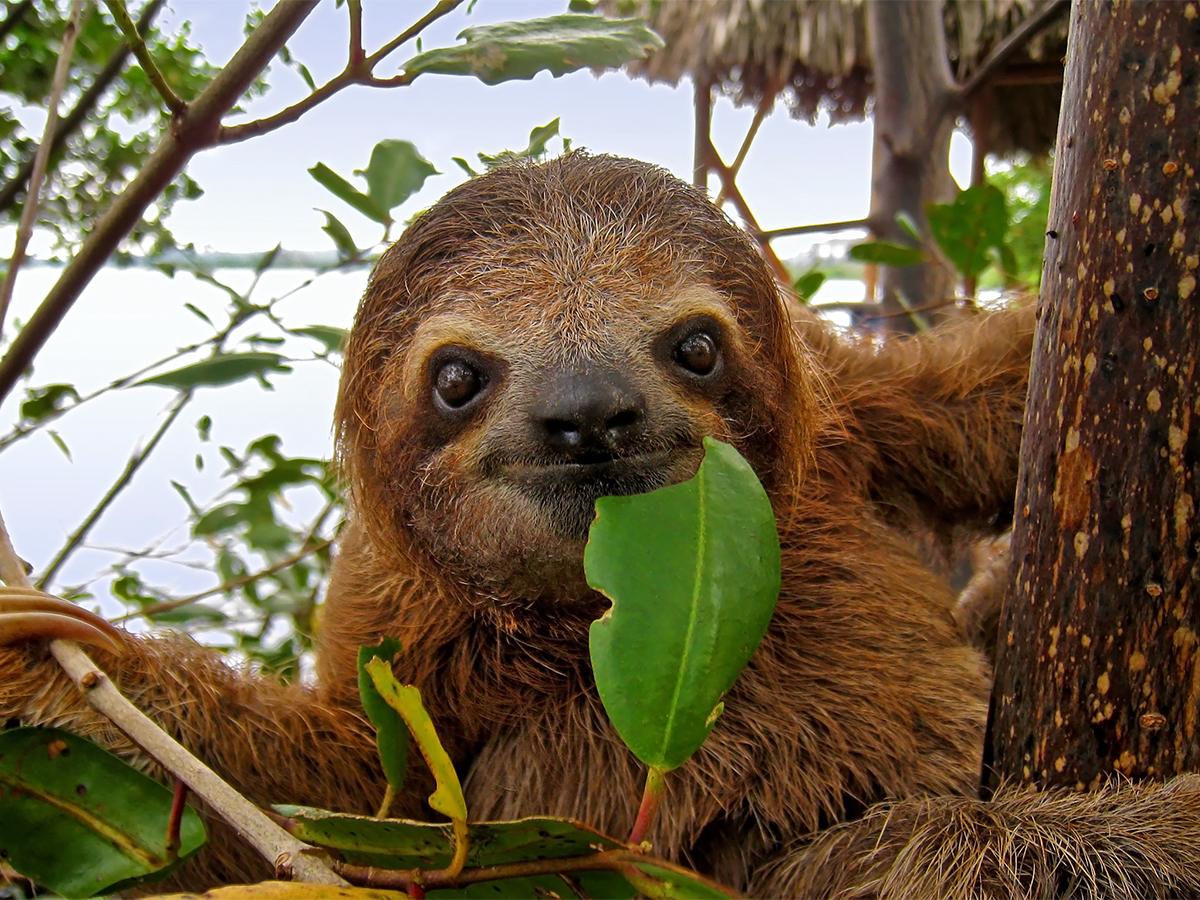Demand End To Butchering of Sloths and Animal Activists for Cocaine Production!
This alert is no longer active, but here for reference. Animals still need your help.
Colombia has the highest biodiversity per square mile in the world. Its rainforests are home to incredibly rich wildlife such as sloths, tapirs, spectacled bears, jaguars, poison frogs and monkeys, as well as 18% of the world's bird species. Devastatingly, drug traffickers and dissidents in Colombia are destroying these precious habitats to grow vast plantations to produce cocaine — principally for consumers in the U.S. and U.K. Every tree chopped down leaves animals like sloths vulnerable to starvation, disease, traffickers and eventually extinction. To make matters significantly worse, activists trying desperately to preserve these precious habitats are murdered in the hundreds. Hold the government accountable to its promise to protect environmental activists in Colombia, and demand justice for those who have been murdered in cold blood!
Each coca plant (not to be confused with the cacao tree which produces chocolate) produces a fraction of the ingredients needed to produce cocaine. This means that a huge amount of land is required to satisfy the demand for cocaine that's driven by countries like the U.S. and the U.K.; land which is typically obtained through mass deforestation.
Sloths are facing extinction in Colombia, due to habitat loss caused by illegal, nature-destroying activities like coca plant cultivation. Because of their slow movements and tranquil nature, sloths are particularly vulnerable following forest destruction. When their habitats are destroyed, they're left vulnerable to predation, starvation, dehydration and parasite infection. Deforestation also makes sloths an easy target for wildlife traffickers. Once captured, traffickers will kill them for meat, sell them off for as little as $30 to buyers who are ignorant of their needs, or exhibit them on roadsides for people to buy as exotic pets.
Both sloths and their human protectors are the victims of the demand for cocaine in the U.S. and U.K. Since 2016, over 1,000 environmental activists and social leaders in Colombia have been ruthlessly killed for attempting to protect natural areas and local wildlife such as sloths.
It is rare for the perpetrators to face prosecution or answer for their crimes, making Colombia the most dangerous place in the world to be an activist. Female and Indigienous activists are those most often targeted, receiving death threats that warn them to, “keep their mouths shut” about local environmental issues or run the risk of their entire families being assassinated.
The scale of violence, for such a trivial and needless product, is sickening.
This shouldn't be happening. The U.S., Colombia's largest trade partner and biggest consumer of cocaine in the world, has failed to act on its 2018 agreement to “enforce environmental laws and prosecute wildlife traffickers to protect Colombia's biodiversity” and to “achieve a sustained reduction in illegal narcotics trafficking.” Instead, both the U.S. and Colombia's governments have responded with inaction and empty promises, while environmental activists and threatened species like sloths are butchered with impunity.
Imagine taking action against the destruction of a local wildlife habitat, and subsequently facing the prospect of yourself, your family or your friends being brutally murdered. This is the situation in Colombia, and this is exactly why we need to act with urgency. It is incredible that activists in Colombia are brave enough to continue their work, given the risks they face. As activists ourselves, we must consider it our duty to do what we can to protect them and the animals they work to save.

This alert is no longer active, but here for reference. Animals still need your help.


